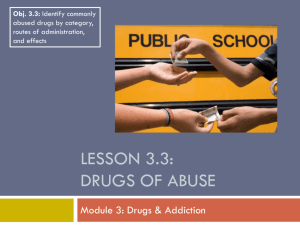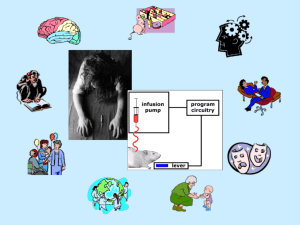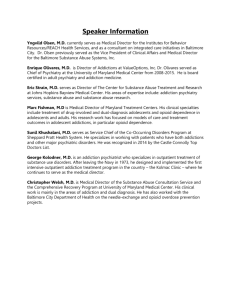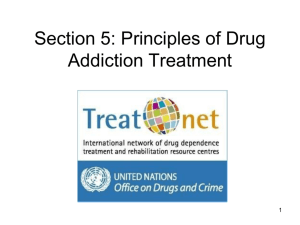60% 30% 1 5
advertisement
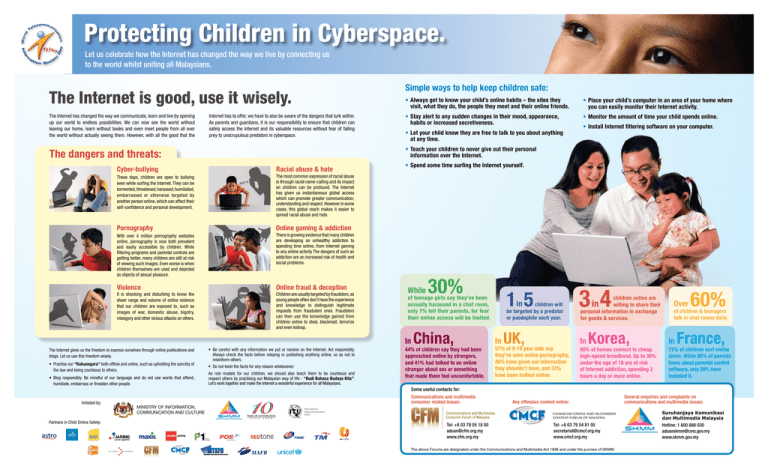
Protecting Children in Cyberspace. Let us celebrate how the Internet has changed the way we live by connecting us to the world whilst uniting all Malaysians. Simple ways to help keep children safe: The Internet is good, use it wisely. The Internet has changed the way we communicate, learn and live by opening up our world to endless possibilities. We can now see the world without leaving our home, learn without books and even meet people from all over the world without actually seeing them. However, with all the good that the Internet has to offer, we have to also be aware of the dangers that lurk within. As parents and guardians, it is our responsibility to ensure that children can safely access the Internet and its valuable resources without fear of falling prey to unscrupulous predators in cyberspace. •Always get to know your child’s online habits – the sites they visit, what they do, the people they meet and their online friends. • Place your child’s computer in an area of your home where you can easily monitor their Internet activity. • Stay alert to any sudden changes in their mood, appearance, habits or increased secretiveness. •Monitor the amount of time your child spends online. • Let your child know they are free to talk to you about anything at any time. • Teach your children to never give out their personal information over the Internet. The dangers and threats: Cyber-bullying Racial abuse & hate These days, children are open to bullying even while surfing the Internet. They can be tormented, threatened, harassed, humiliated, embarrassed or otherwise targeted by another person online, which can affect their self-confidence and personal development. The most common expression of racial abuse is through racist name-calling and its impact on children can be profound. The Internet has given us instantaneous global access which can promote greater communication, understanding and respect. However in some cases, this global reach makes it easier to spread racial abuse and hate. Pornography Online gaming & addiction With over 4 million pornography websites online, pornography is now both prevalent and easily accessible by children. While filtering programs and parental controls are getting better, many children are still at risk of viewing such images. Even worse is when children themselves are used and depicted as objects of sexual pleasure. There is growing evidence that many children are developing an unhealthy addiction to spending time online, from Internet gaming to any online activity The dangers of such an addiction are an increased risk of health and social problems. Violence Online fraud & deception It is shocking and disturbing to know the sheer range and volume of online violence that our children are exposed to, such as images of war, domestic abuse, bigotry, misogyny and other vicious attacks on others. Children are usually targeted by fraudsters, as young people often don’t have the experience and knowledge to distinguish legitimate requests from fraudulent ones. Fraudsters can then use the knowledge gained from children online to steal, blackmail, terrorize and even kidnap. • Spend some time surfing the Internet yourself. While The Internet gives us the freedom to express ourselves through online publications and blogs. Let us use this freedom wisely. • Practise our “Rukunegara” both offline and online, such as upholding the sanctity of the law and being courteous to others. • Blog responsibly. Be mindful of our language and do not use words that offend, humiliate, embarrass or threaten other people. • Be careful with any information we put or receive on the Internet. Act responsibly. Always check the facts before relaying or publishing anything online, so as not to misinform others. • Do not twist the facts for any reason whatsoever. As role models for our children, we should also teach them to be courteous and respect others by practising our Malaysian way of life - “Budi Bahasa Budaya Kita”. Let’s work together and make the Internet a wonderful experience for all Malaysians. 30% 15 of teenage girls say they’ve been sexually harassed in a chat room, only 7% tell their parents, for fear their online access will be limited. In Initiated by: • Install Internet filtering software on your computer. China, in children will be targeted by a predator or paedophile each year. In 44% of children say they had been approached online by strangers, and 41% had talked to an online stranger about sex or something that made them feel uncomfortable. UK, 57% of 9-19 year olds say they’ve seen online pornography, 46% have given out information they shouldn’t have, and 33% have been bullied online. children online are willing to share their personal information in exchange for goods & services. In Korea, 90% of homes connect to cheap, high-speed broadband. Up to 30% under the age of 18 are at risk of Internet addiction, spending 2 hours a day or more online. Some useful contacts for: Communications and multimedia consumer related issues: Any offensive content online: MINISTRY OF INFORMATION, COMMUNICATION AND CULTURE International Telecommunication Union Partners in Child Online Safety: POS MALAYSIA NEW CORPORATE SIGNATURE 1.1 Corporate Signature Tel: +6 03 79 54 81 05 secretariat@cmcf.org.my www.cmcf.org.my 50 % 100 % 50 % 60% of children & teenagers talk in chat rooms daily. In France, 72% of children surf online alone. While 85% of parents know about parental control software, only 30% have installed it. General enquiries and complaints on communications and multimedia issues: Suruhanjaya Komunikasi dan Multimedia Malaysia 100 % Tel: +6 03 78 05 18 00 aduan@cfm.org.my www.cfm.org.my Over The above Forums are designated under the Communications and Multimedia Act 1998 and under the purview of SKMM. Hotline: 1 800 888 030 aduanskmm@cmc.gov.my www.skmm.gov.my
